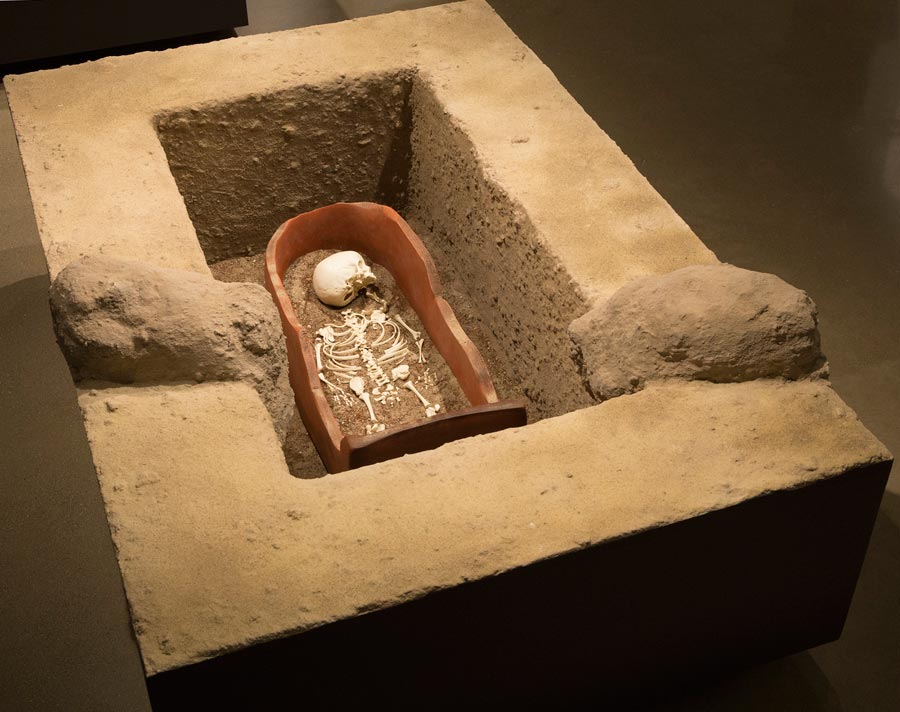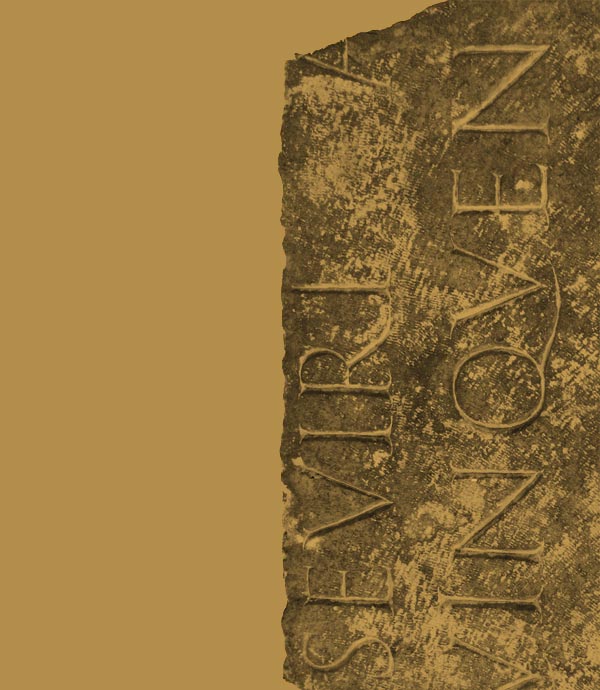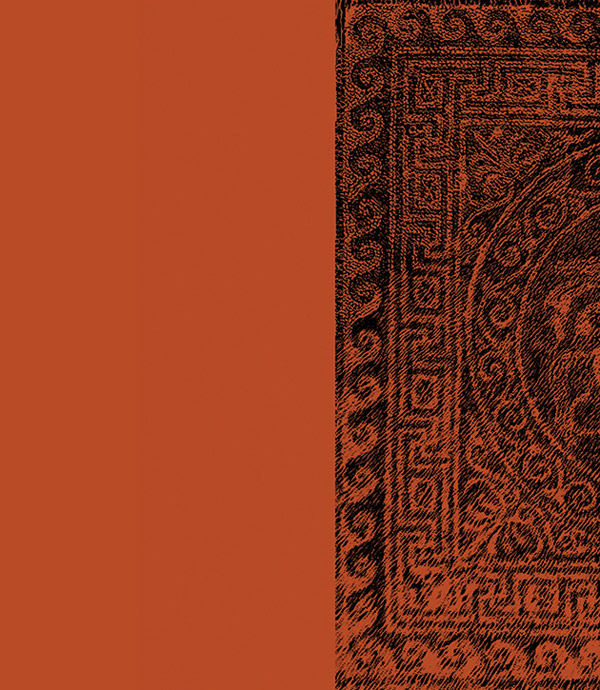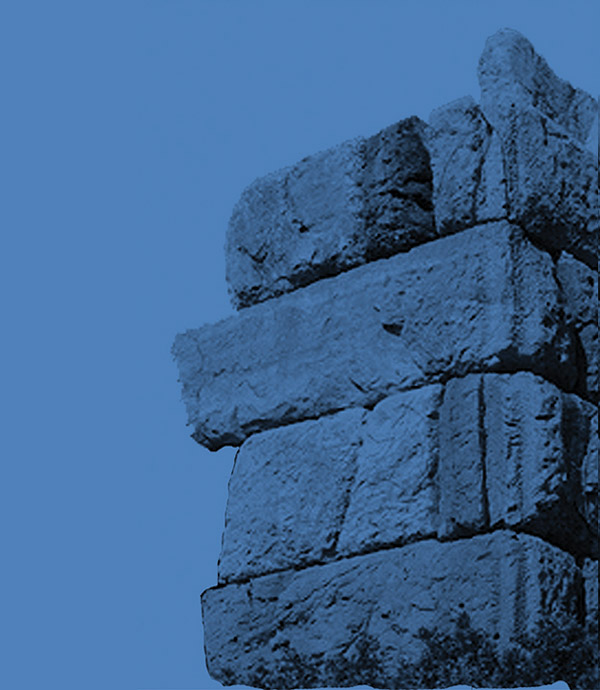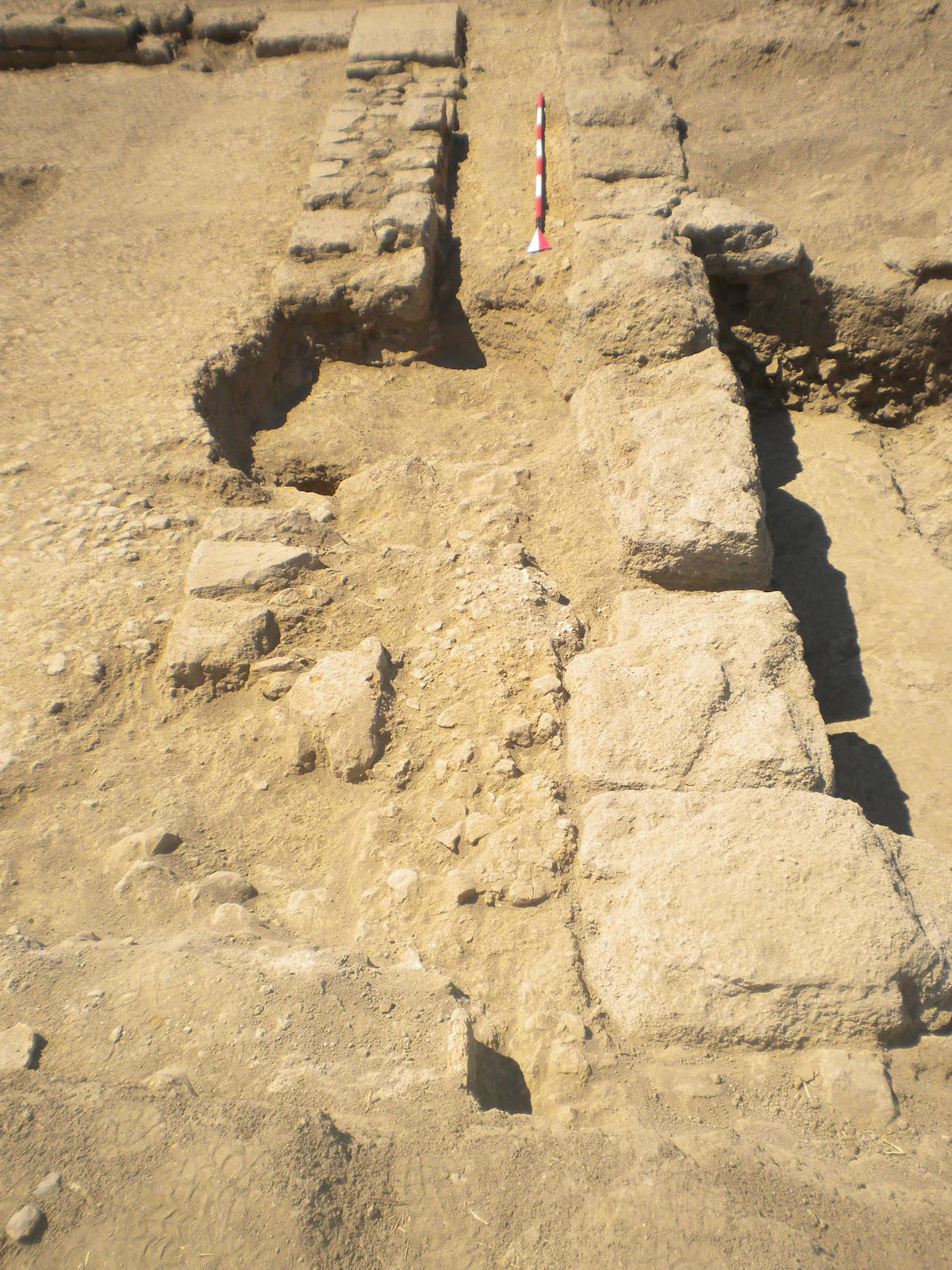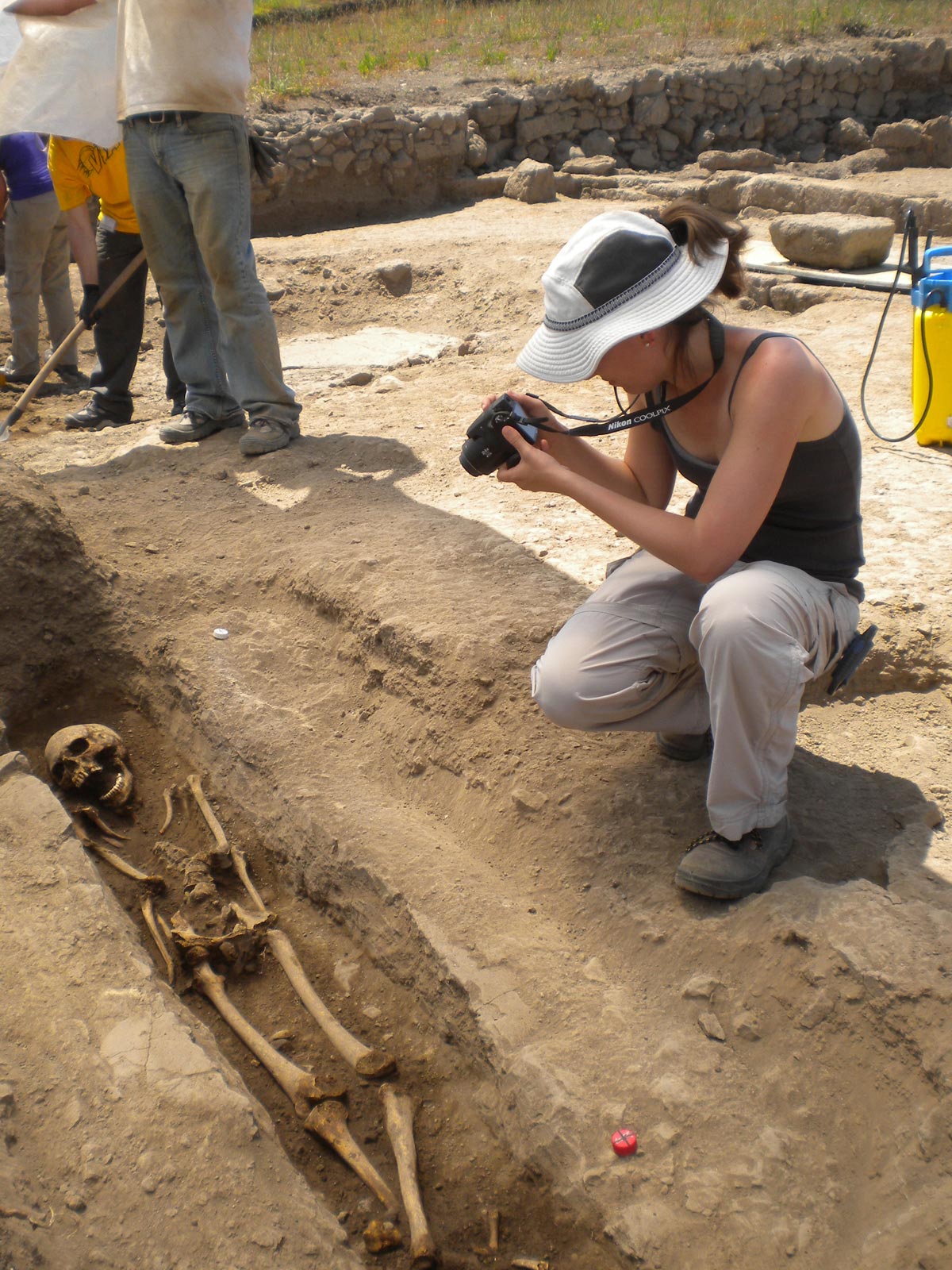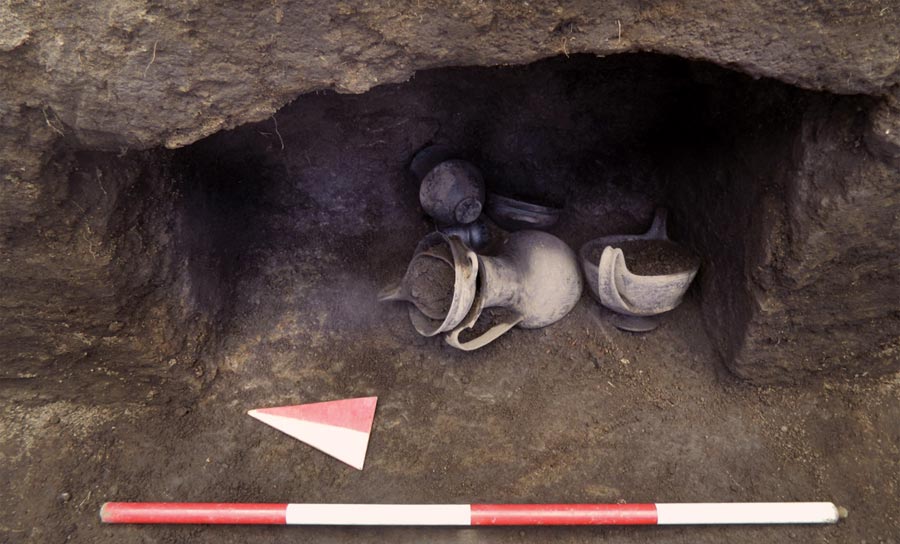Sarcophagus
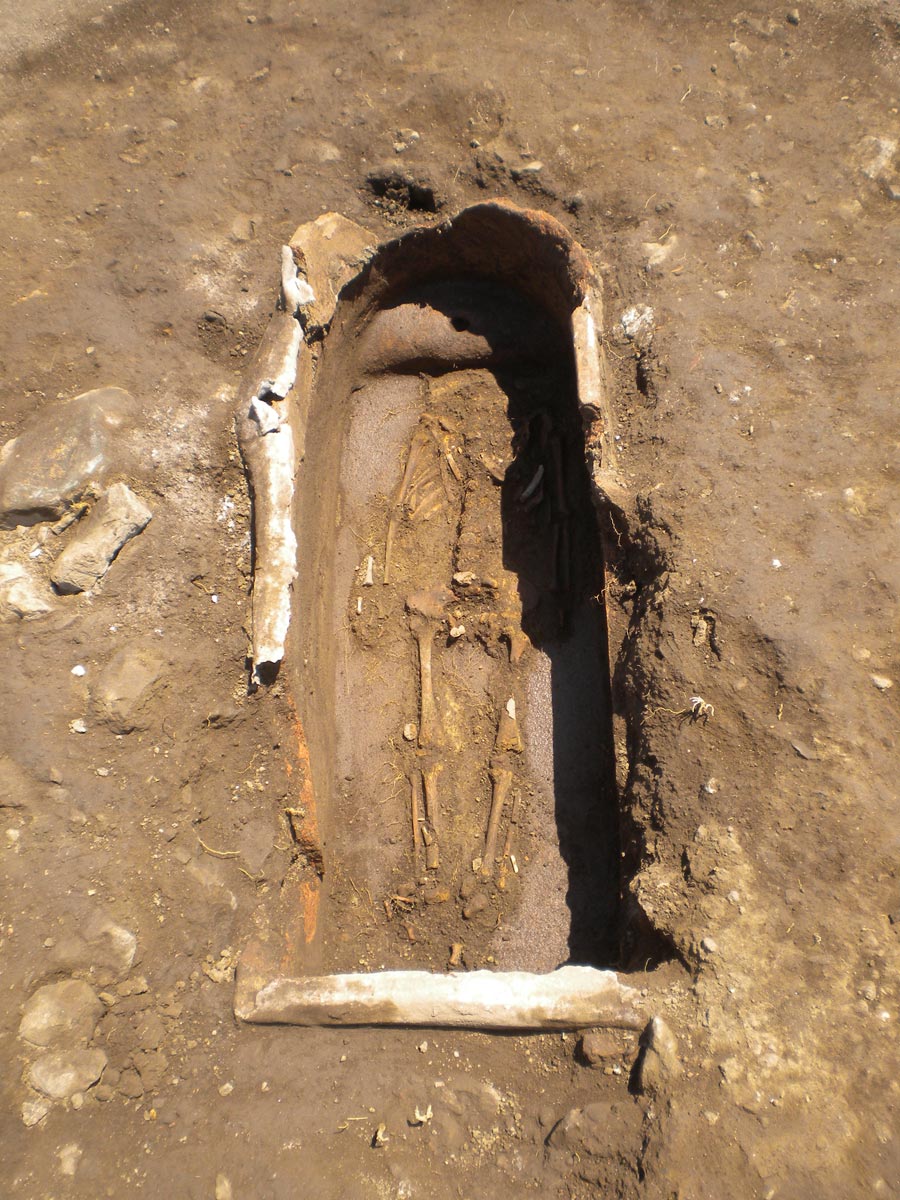
This sarcophagus was uncovered at Gabii in 2010. It contained the bones of a young child, reminding us of the harsh reality of life in the Roman world, when child mortality was very high.
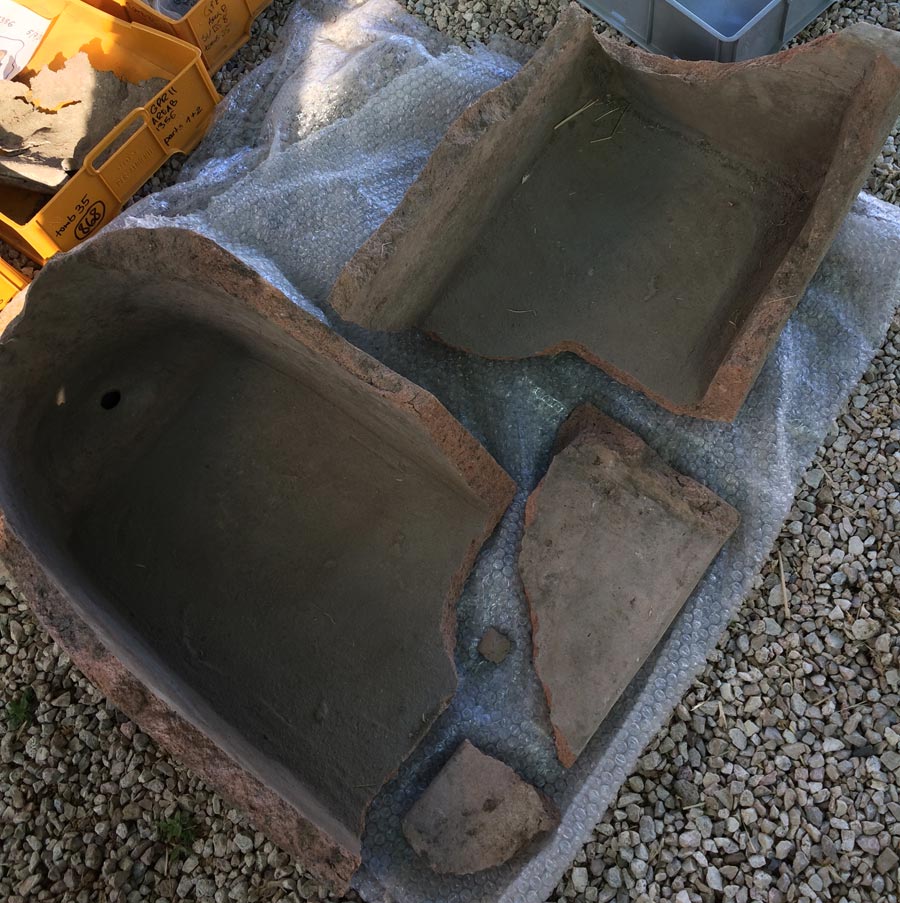
The sarcophagus documents the transformation of Gabii in the late Roman period. The area in which it was found was once a thriving residential neighborhood, but it had been abandoned by the 3rd century AD. After that, the houses were razed and the area was used as a cemetery. Some burials were even dug into the foundations of earlier houses, as shown here. In this way, a space for the living became a place for the dead.
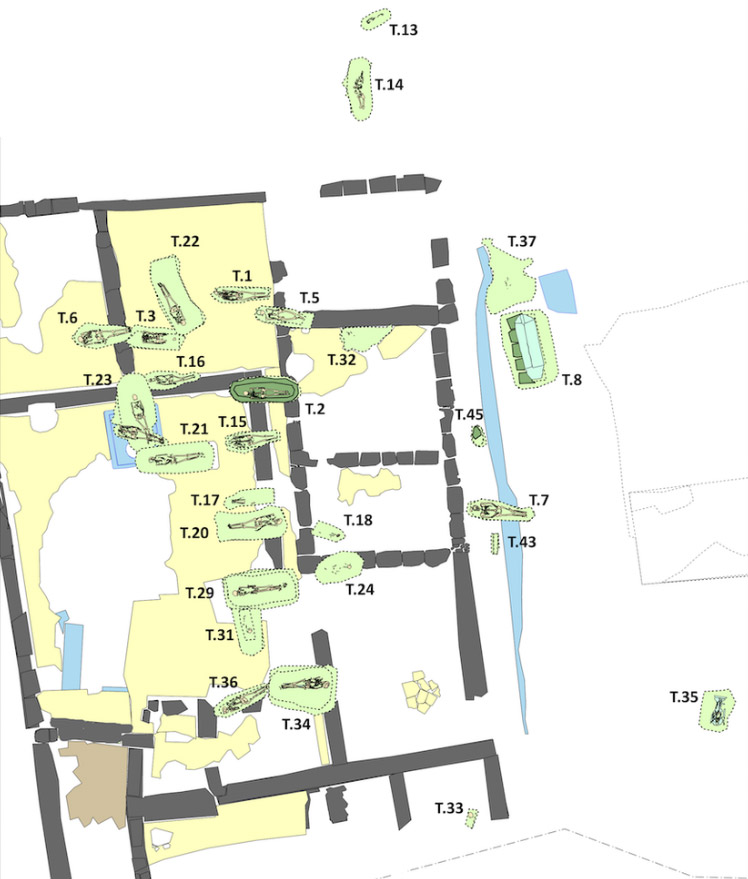
Thanks to modern technology such as 3D modeling and 3D printing, archaeologists can now make more detailed records of their discoveries than ever before. This replica is based on a 3D computer model of the original sarcophagus, made using a technique called photogrammetry, in which digital photographs taken from many different vantage points are stitched together in the computer. The 3D model was then transferred to a computer-guided cutting machine (router) and milled out of hard foam. The same technology was used to make the model of Notion.
